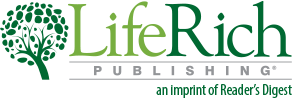Functional medicine is the application of a new model of thinking about bodily problems. It seeks to identify and address the root causes of disease, and views the body as one integrated system, not a collection of independent organs divided up into medical specialties. It treats the whole system, not just the bodily symptoms. It’s a way to get to the root of health problems and treat the underlying causes of what makes you sick instead of re-suppressing symptoms with only medications or with unhealthy defense mechanisms such as somatization.
Some patients will feel better after taking a medication even if the drug doesn't actually do anything to treat their condition. Doctors know that even real medicine cures people partly because of the placebo effect. Dr. William Goldwag was thinking along this line when he said: “It is an accepted fact that 85% of the ailments brought to a general practitioner will get better and 5% will get worse regardless of what the doctor does.”
Law of attraction has been talked about for decades though it still seems so mystical to many people. Focus on the bad things and you will invite negativity into your life. Focus on the good things and they will come to you, because your brain is seeking them out. It’s your Reticular Activating System (RAS) influencing the world you see around you. If you focus hard on anything, your RAS will reveal the people, information and opportunities that will help you achieve them.
The Reticular Activating System (RAS) is a bundle of nerves at the brainstem that filters out unnecessary information so the important stuff gets through. Your RAS takes what you focus on and creates a filter for it. It then sifts through the data and presents only the pieces that are important to you. All of this happens without you noticing, of course. The RAS programs itself to work in your favor without you actively doing anything. It is our internal Global positioning system (GPS) on this third dimensional journey on planet earth.
One of the main tasks of the mind is to fight or remove emotional pain, which is one of the reasons for its nonstop tendency, but all it can ever achieve is to cover the pain up temporarily. In fact, the harder the mind struggles to get rid of the pain, the greater the pain. Eckhart Tolle believes that the mind can never find the solution, nor can it afford to allow you to find the solution because it is itself an intrinsic part of the problem. Imagine a chief of police ordered by the District Attorney to find a drug dealer when the person smuggling drugs is the chief of police himself. You will not be free from that pain until you cease to derive your sense of self from identification with the mind, which is to say from ego.
Through attachment to things or people, our mind can cause lot of pain. The best advice is to love everything but be attached to nothing. Learning to live isn’t about grasping on to things. It isn’t about clinging to everything and everyone. As already mentioned above, life is about learning to let go. Learning to live is learning to let go. Learning to let go is learning to be happy. We get so attached to everything we have and everything we do. We get attached to our ideas, our way of doing things, to places, to things and the many people present in our lives, not knowing that these attachments can bring us suffering. It would have been nice if we could appreciate our friends, love our family members or earn our money without being attached to them since nothing in this world lasts forever. The people you love, they will leave you one day; the career you now have, one day it will be gone; the house you live in, one day it will no longer be yours; the body you have, your beauty, your youth, they will all be gone eventually. The problem is that most of us get so attached to all these things, all these people, all these places, and once we lose them, we become heartbroken, devastated, and homicidal or suicidal.
What we think about and talk about is what we bring about. Therefore, we should be careful about what occupies our mind because, whether we realize it or not, all our thoughts are like seeds that, in time, will bring forth fruits.
We now start our day with a hot shower, a cup of coffee and a handful of pills. Doctors sometimes prescribe medications for common problems like headache, heartburn or stress-related symptoms without first suggesting lifestyle changes. But Consumer Reports warns that all those pills may not be necessary and might do more harm than good.
With the passage of time, a chronic disease changes the mentality of its victims. They get used to their illness. They learn to live with it. And soon, in many cases, they can no longer live without it. It excuses them from numerous obligations and gains them some attention and care. It works its way into their emotional economy and becomes a convenient mechanism for coping with life.
Iyanla Vanzant summarizes the core of this book when she states:
So many of us invest a fortune making ourselves look good to the world, yet inside we are falling apart. It's time to invest on the inside. Until you heal the wounds of your past, you are going to bleed. You can bandage the bleeding with food, with alcohol, with drugs, with work, with cigarettes, with sex; but eventually, it will all ooze through and stain your life. You must find the strength to open the wounds, stick your hands inside, pull out the core of the pain that is holding you in your past, the memories and make peace with them.



